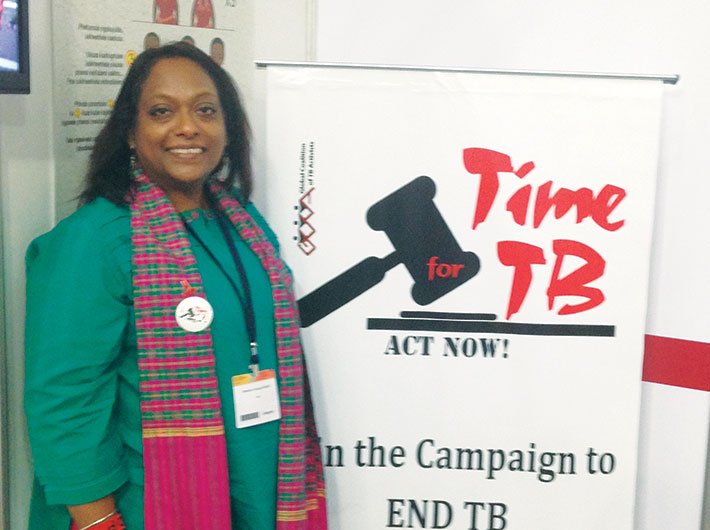Blessina Kumar, chair, Global Coalition of TB Activists, discusses TB in healthcare workers and problems which need attention from government and hospitals
The risk of TB infection among healthcare workers (HCWs) is largely understudied and preventive measures are clearly not in place. Blessina Kumar, chair, Global Coalition of TB Activists, discusses with Sakshi Kuchroo the problems in areas which need immediate attention from the government as well as the hospital managements.
What do you think is the reason for a continuous rise in the number of TB cases in healthcare workers?
We need to look at this problem at a different level. We need to understand the epidemiology of TB which clearly shows that TB causing bacteria is passed from person to person through air. So even if you breathe near a TB patient, you are at risk. So the first and foremost point that we need to focus on is infection control in hospitals. There is a need to address this issue especially in healthcare facilities where the risk is more.
How can hospitals make sure that there is 100 percent infection control?
By taking simple measures like making sure there is proper ventilation in rooms and providing workers with masks. All this will really help in curbing the infection. And let me tell you, there is a huge difference between the number of masks that the hospitals get and the number of masks that the workers receive. This is a scam. Not all of them have access to these masks. We can’t achieve 100 percent infection control till the time we don’t educate the healthcare workers, especially the sweepers and ward boys. There is not even an attempt to talk about TB. If you notice in hospitals, the posters providing information about TB are so ‘medicalised’ that it is difficult even for the medical staff to understand. Then how do they expect the sweepers who are in direct contact with TB patients to know about the disease and take appropriate measures?
There are some hospitals that claim TB has a social stigma attached to it. They claim that healthcare workers, if infected with TB, hide the fact because they fear their loved ones will leave them. What do you think about this?
This is just a blame game. Why is there a stigma? Have the hospital managements tried to address this issue? This whole thing of ‘we have done our bit’ and ‘blame it on the workers’ is just sad and not acceptable. It is high time that people are held accountable. Every hospital has a monitoring committee. If a worker dies of TB, the committee should be held accountable. Ask them how it happened, why it happened, what was the treatment given. Due to lack of awareness, there are no questions asked from the workers also, so the management gets away with it.
What can these workers do to help themselves?
They are disempowered. Alone, they can’t fight it. We need to educate them and empower them. They first need to know about all the precautionary steps that should be taken while on the job. Even after that if they catch TB, there should get the whole treatment and it is possible only if we counsel them. The problem with TB treatment is that it is difficult and it goes on for a long period of time, so patients stop taking medicines after a while. So counselling is very important, not only to educate them about getting a full-fledged treatment but also for their mental and emotional support.
The ministry of health and family welfare is planning fresh guidelines for healthcare givers who deal with TB patients. Do you think that will help in infection control?
What are the guidelines going to do? Hospitals already have a set of guidelines put up on their walls. What difference are a few more going to make? The solution is not ideating how to solve the problem, the solution lies in implementation at the grassroots level. You can have the best of guidelines and yet have thousands die from TB infection every year. Hospitals need to pull up their socks and start taking this problem seriously; otherwise we are just wasting our time.
(The interview appears in the June 1-15, 2016 issue)



